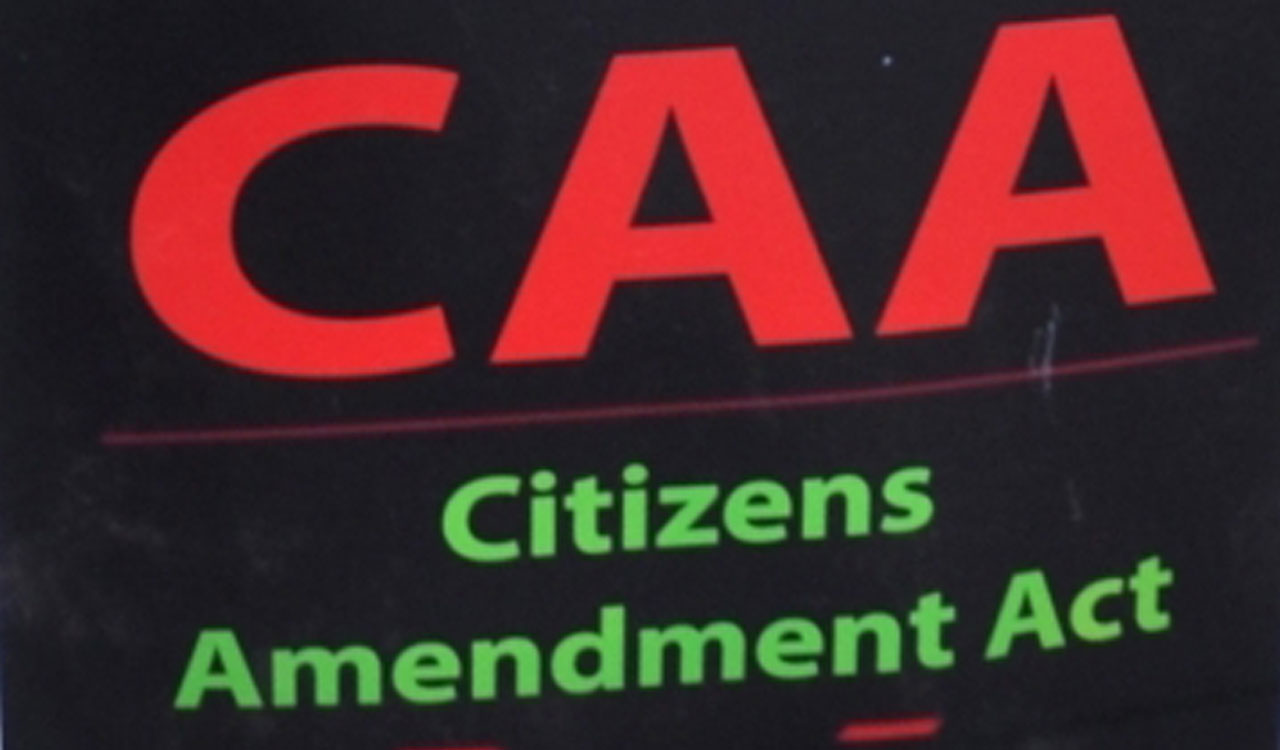In a country that takes pride in secularism being its core value, religion cannot be the basis of citizenship
Published Date – 12 March 2024, 11:45 PM

The Centre’s decision to notify the rules for implementation of the Citizenship Amendment Act (CAA), just a few days before the expected announcement of the Lok Sabha election schedule, is clearly designed to polarise public opinion ahead of crucial polls. The timing of the move raises questions over the government’s motives because it took more than four years to notify the rules after both Houses of Parliament passed the Bill in December 2019, amending the Citizenship Act of 1955. The crux of the controversial amendment is that it provides an expedited route to Indian citizenship for migrants from three Islamic countries — Afghanistan, Bangladesh and Pakistan — belonging to Hindu, Sikh, Jain, Parsi, Buddhist and Christian communities. These migrants must have entered India on or before December 31, 2014, citing religious persecution in their home countries. The exclusion of the Muslim community from the purview of the Act has triggered a furore in the country because many see it as discriminatory on the basis of religion and unconstitutional. In a country that takes pride in secularism being its core value, religion cannot be the basis of citizenship. For the BJP, however, it means fulfilling yet another manifesto promise after other key promises like the abrogation of Article 370, construction of the Ram temple at Ayodhya and ending the practice of triple talaq. The challenge to the CAA rests on the ground that it violates Article 14 of the Constitution, which guarantees equality before the law and equal protection of the laws within the territory of India.
The petitioners challenging the Act argued before the Supreme Court that using religion as a qualifier or a filter violates the fundamental right to equality. The amendment was challenged before the apex court in 2020 by the Indian union Muslim League (IUML). Since then, more than 200 petitions have been filed and tagged with the IUML’s challenge. In October 2022, a division bench of the court passed an order stating that final hearings would begin in December 2022 but the case has not been heard since. With the rules being finally notified, thousands of non-Muslim migrants from the three countries who are seeking Indian citizenship will benefit. Until now, these migrants were either living in India illegally or on long-term visas. However, from a constitutional and moral stand point, the CAA is a flawed legislation. It is a clear attempt to alter the non-religious nature of Indian citizenship and undermine the fundamental principles of secularism and equality. The enactment of CAA has raised concerns that the introduction of a religious test for citizenship insults the memory of India’s founders who consciously chose not to incorporate a racial or religious principle in the provisions applicable to citizenship. There are genuine fears that the CAA, in combination with the National Register of Citizens (NRC), will result in religious discrimination and undermine the spirit of the Constitution.




